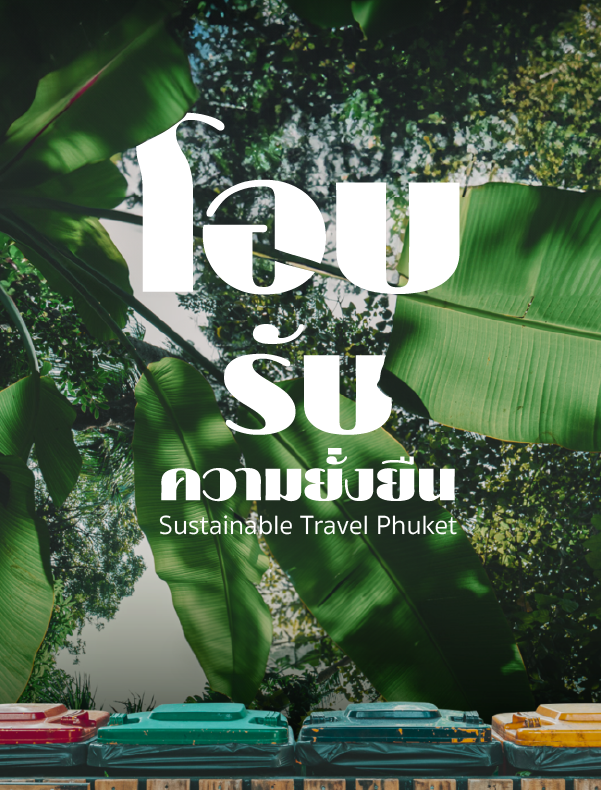Climate change, Carbon Footprint, Zero Waste – these words are increasingly seen through our eyes, accompanied by the ever-changing weather patterns and natural disasters that are getting closer to us every day. It cannot be denied that each of us is part of this problem, and that is the reason why we all have to participate in working together to prevent, alleviate, and solve this global crisis. Though Phuket is a small tourist destination that welcomes travelers from all over the world, it is also aware of the issue of climate change. Various sectors, such as the tourism industry, are starting to ignite the spark of awareness and take action. They aim to awaken all of us and pay attention to preserving our world for the long term. Especially for Phuket, which relies on tourism, finding sustainable ways to develop the city is a challenge that we must seek answers together.
Bhummikitti Ruktaengam
Sustainable Tourism Development Foundation
The name of the Sustainable Tourism Development Foundation may still be new and unfamiliar, but this is the starting point of action by the tourism industry that wants to play a part in preserving Phuket and sustaining our world. Mr. Kumpol Kittithat, President of the Sustainable Tourism Development Foundation and former President of the Phuket Tourism Business Association, spoke about the foundation’s origins, stating, ‘In recent years, we have seen direct impacts of Climate Change on tourism, which, when traced back to the root cause, stems from the collective use of resources, particularly by the tourism industry. Whether big or small, every individual contributes to carbon emissions, and we all experience the consequences. Therefore, we must genuinely come together to address this issue.’
In addition, we have found that in Phuket, public infrastructure and environmental management are still insufficient, and it is not solely the responsibility of the government to address this matter. The private sector also has a role to play; entrepreneurs need to get involved. Thus, when the Prime Minister announced at the 26th UN Climate Change Conference of the Parties (COP26) that Thailand is committed to elevating efforts to tackle climate change fully, aiming for carbon neutrality by 2050 and achieving net-zero greenhouse gas emissions by 2065, it became evident that the government alone cannot achieve these goals. The private sector and civil society must work together. It is clear that global awareness of this issue is increasing. Research has shown that European tourists are becoming more environmentally conscious, seeking hotels with carbon management practices and certifications of eco-friendliness. Many tour companies are also looking for collaborations with eco-friendly businesses and hotels. The world is moving towards this trend.
As representatives of the Phuket Tourism Business Association, we have to step up and drive this movement. This is the reason for coming together to establish the Sustainable Tourism Development Foundation, not just for Phuket but for the entire country. It all begins in Phuket, our home.
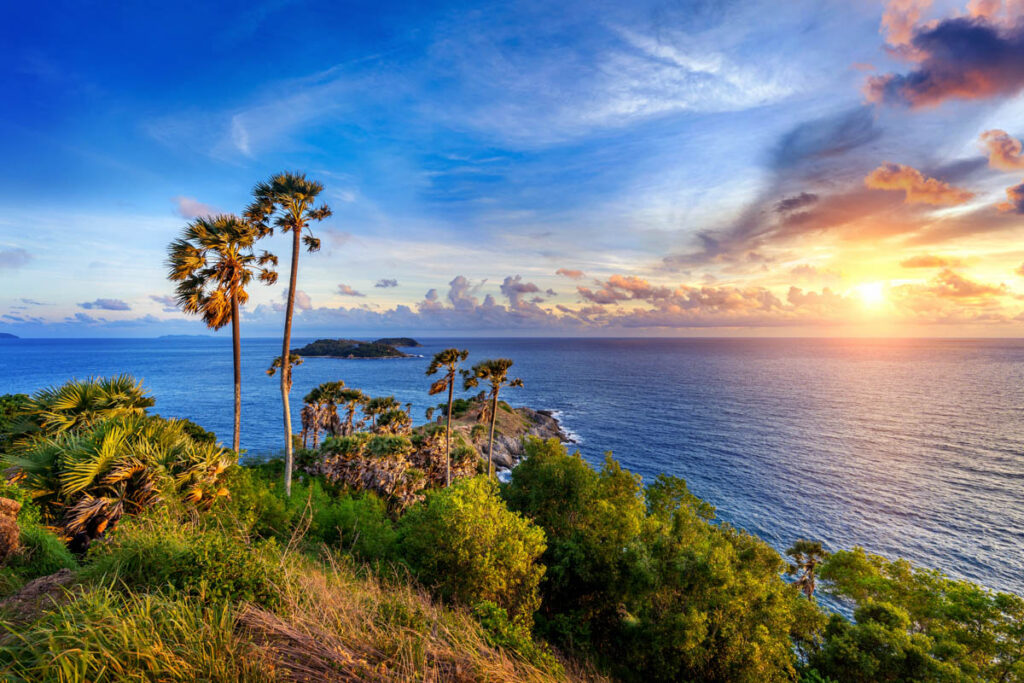
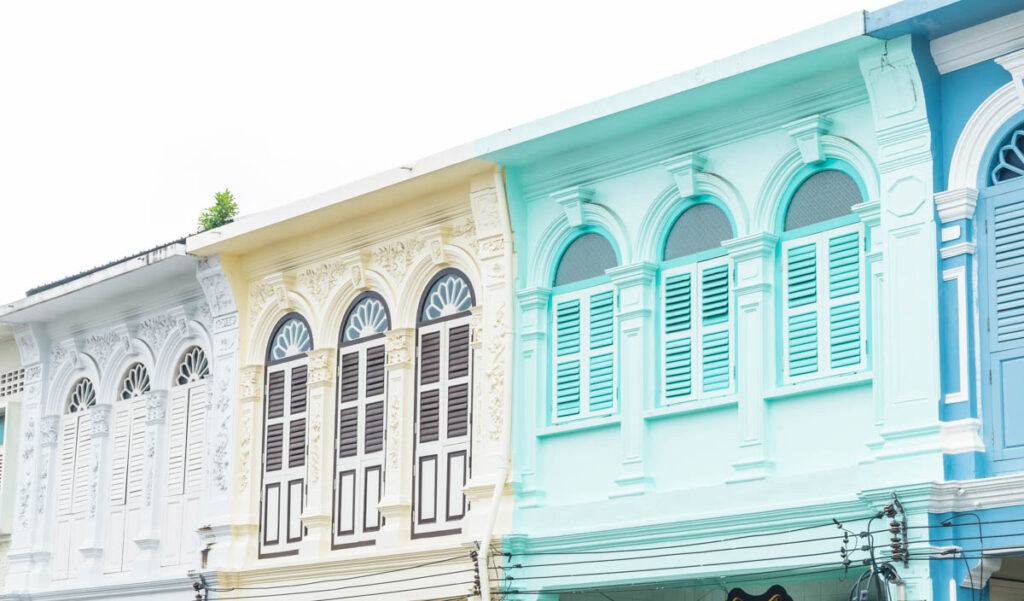
For the goals of the foundation, Kumpol Kittithat has projected a vision for the future, outlining the four key areas that will be emphasized and driven forward
The first point is that we need to be an organization capable of providing certification or at least be an entity that imparts knowledge to entrepreneurs. Accessing such knowledge incurs relatively high costs. For instance, determining the Carbon Footprint of our hotels involves significant expenses. Environmental standard assessments also entail complex processes. Therefore, we aspire to become a Certifying Body that genuinely supports and guides entrepreneurs in this matter at a more affordable cost.
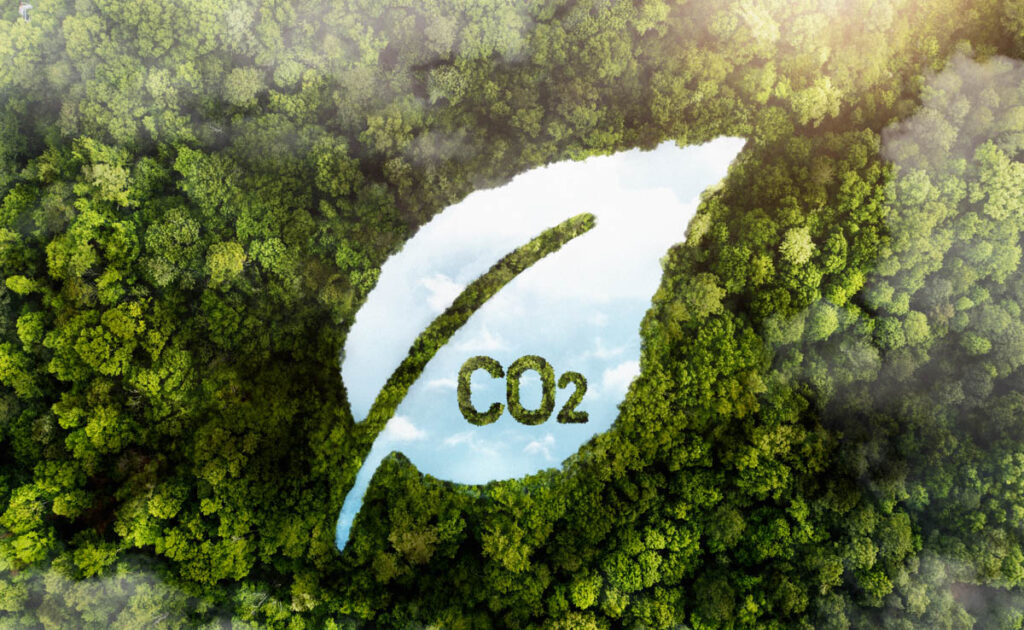
The second aspect revolves around Food Waste, which is an issue that affects us all closely. Each day, a significant amount of food waste or organic waste is generated by hotel establishments. We approach the Food Waste issue in two parts:
- Food (Before) Waste: This part involves surplus food that remains unconsumed from hotel breakfast buffets, which cannot be reused in the kitchen. Some of it is still edible but must be discarded, while other portions consist of canned or labeled food items with expiration dates, though they are still perfectly safe for consumption. We plan to establish Memorandums of Understanding (MOUs) with various hotels to have them deliver such food to our center, which will be located in three districts across Phuket. At the center, culinary students will prepare these ingredients into new dishes and sell them at affordable prices to consumers, enabling them to pay as they can. We will not fix prices or give away food for free, as our aim is for the center’s food outlet to sustain itself and create a viable source of income. Additionally, we intend to implement supplementary projects like ‘Chef’s Table’ where we showcase ‘Left Over Chef’s Table’ to serve these repurposed dishes, as part of our efforts to reduce the amount of food waste discarded without benefits.
- Organic Waste Management: For the organic waste that some hotels have the capacity to manage, they will ferment it to produce compost or liquid fertilizer. For hotels without such facilities, we will collect the organic waste and process it into fertilizer to distribute to local farmers. This will help in segregating organic waste from reaching incinerators, significantly reducing the burden on waste incineration facilities. If successful, we may become the first province in Thailand to genuinely address this issue through community effort, rather than solely relying on the government.
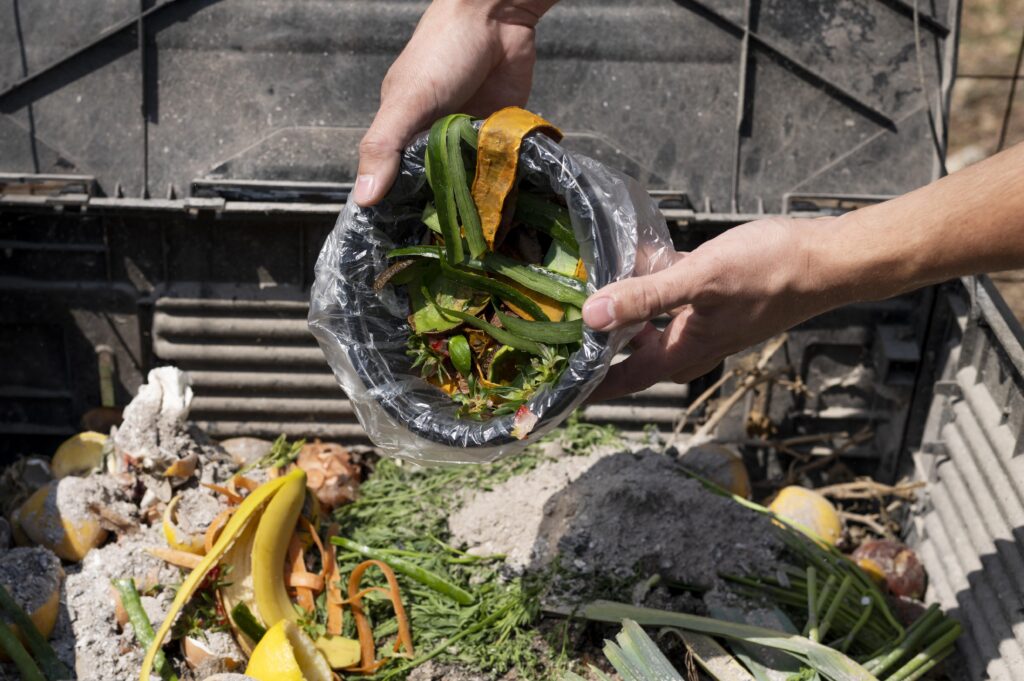

The third objective that we have set is to drive Phuket towards becoming a Green Destination, where tourists can travel and explore while compensating for their Carbon Footprint. We are well aware that each one of us generates a Carbon Footprint in our daily activities, some more than others. Traveling by air, for example, contributes to an increase in carbon emissions in the atmosphere. A simple Google Flight search can reveal the amount of carbon emissions produced for the flight route we take. Compensating for Carbon Footprint is becoming a new global trend that we must be more conscious of.
Tourists who value this aspect will show interest if we can offer tour programs that compensate for their Carbon Footprint, such as engaging in tree planting or seagrass restoration. For instance, if Mr. John travels from London to Phuket and the flight generates a certain amount of Carbon Footprint, we can provide him with tour program options. The Blue Program allows him to participate in seagrass restoration, while the Green Program involves tree planting. Mr. John can then choose how many trees he would like to plant to offset his Carbon Footprint. If he is unable to participate directly, he can make a monetary donation, and we will hire local gardeners to plant the trees on his behalf. Landowners with available vacant space can also join us and offer their land at affordable rates to implement this tree planting project, creating a collaborative effort where all parties benefit.
This approach is a win-win solution for everyone involved, effectively managing and sharing the benefits for all parties concerned.
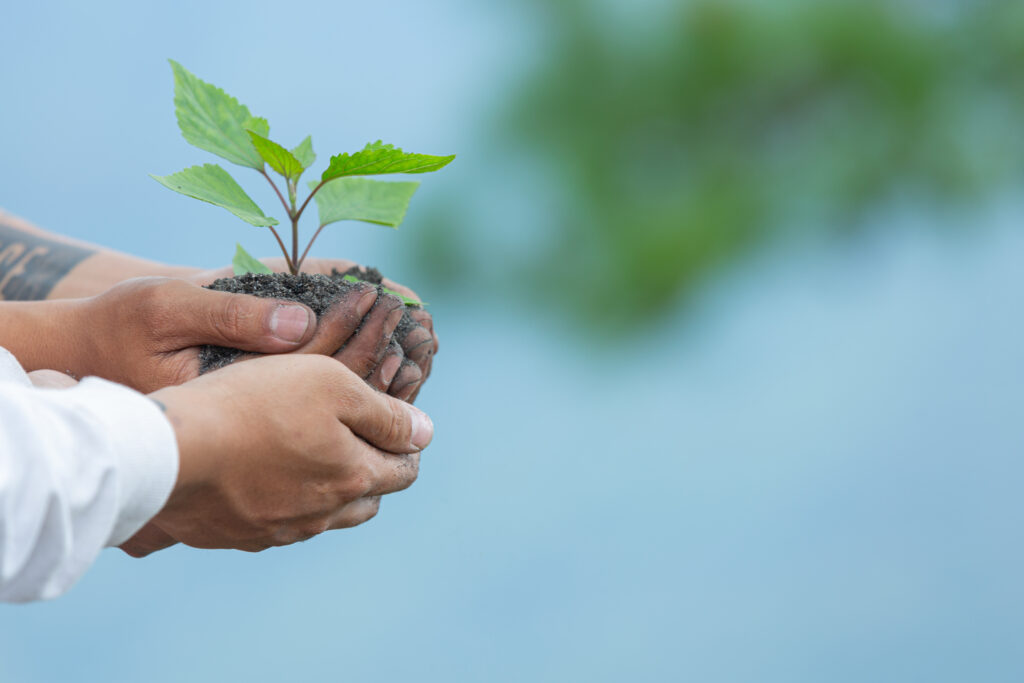
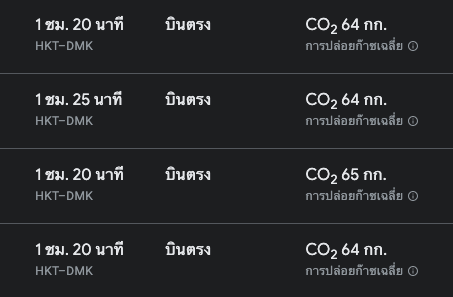
The fourth aspect is our commitment to promoting Green Finance as another important strategy. Clean energy utilization is crucial, especially for businesses like hotels. If hotel operators switch to using electric vehicles or solar energy, it will significantly reduce their reliance on fossil fuels, which release massive amounts of carbon dioxide. Some hotel establishments may be willing to make the transition but face financial constraints. Green Finance or Green Bonds can play a significant role in providing low-interest loans, enabling small hotels and businesses to access funding for installing clean energy infrastructure. This not only helps combat global warming but also reduces long-term operational costs, benefiting both the environment and business sustainability.
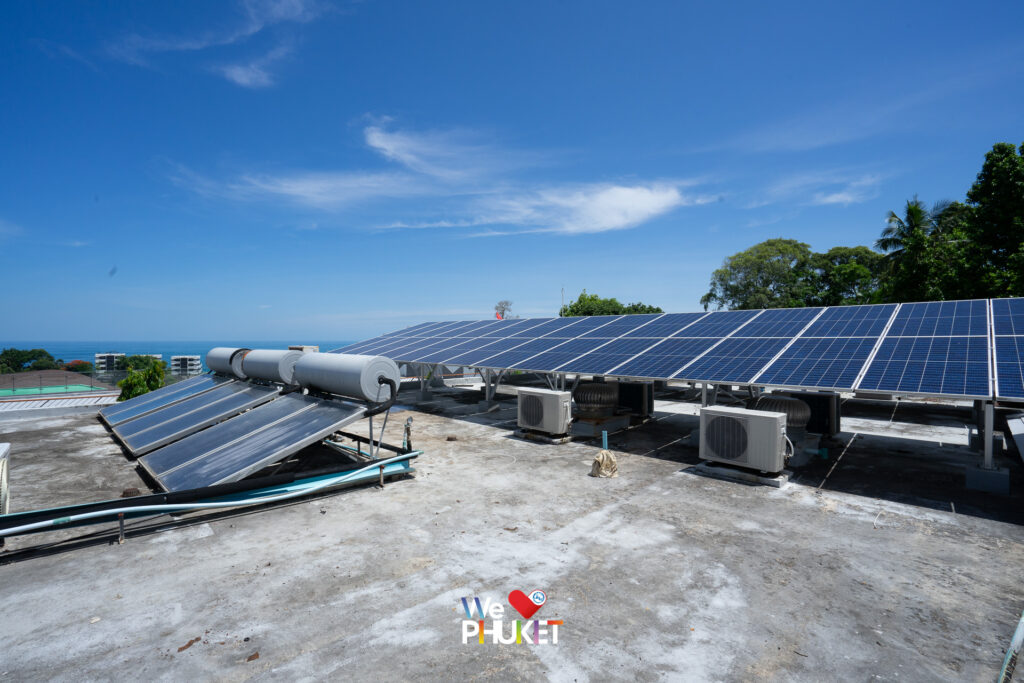


In addition to environmental conservation, the foundation also focuses on sustainable tourism development in other dimensions. One such aspect is education, with plans to promote English language skills among students in Phuket province. Proficiency in English is essential for a tourism destination like Phuket. These initiatives represent just a few examples of the foundation’s comprehensive approach. The overall goal is to drive Phuket towards becoming a Green Destination by the year 2026, with certification from The Global Sustainable Tourism Council, an independent organization that sets standards and practices for sustainable travel and tourism businesses.
“For the journey towards becoming a Green Destination, I believe Phuket has made significant progress. Currently, businesses and the general public are becoming more aware and actively engaged in sustainable practices. While there may still be challenges ahead, we need to collectively embrace a Green Mindset and work together—government, private sector, and the community—all on the same path for a successful outcome.
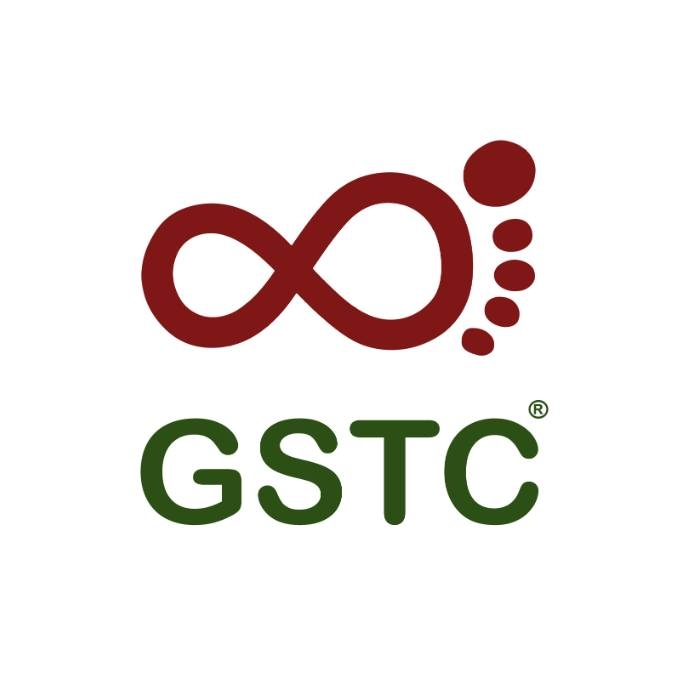
The meaning of “sustainability” according to Khun Bhummikitti Ruktaengam is depicted in the role of a sustainable tourism business representative, which is likened to the lifeblood of Phuket. He explains, “We always talk about passing on a better Phuket to our descendants so that they can continue to do better and pass it on to the next generations. Phuket is the Happiness for All; it must be a place of happiness for everyone. When tourists visit Phuket, they should be happy, and the local people should be happy too. There’s no denying that the lifeblood of Phuket is tourism, and tourism relies on nature and the environment. Tourism and the environment are two sides of the same coin; they are inseparable. Therefore, we must work together to take care of and preserve nature and the environment. It starts with us individually, with simple things. If everyone can do it, we can make a tremendous difference in the world.
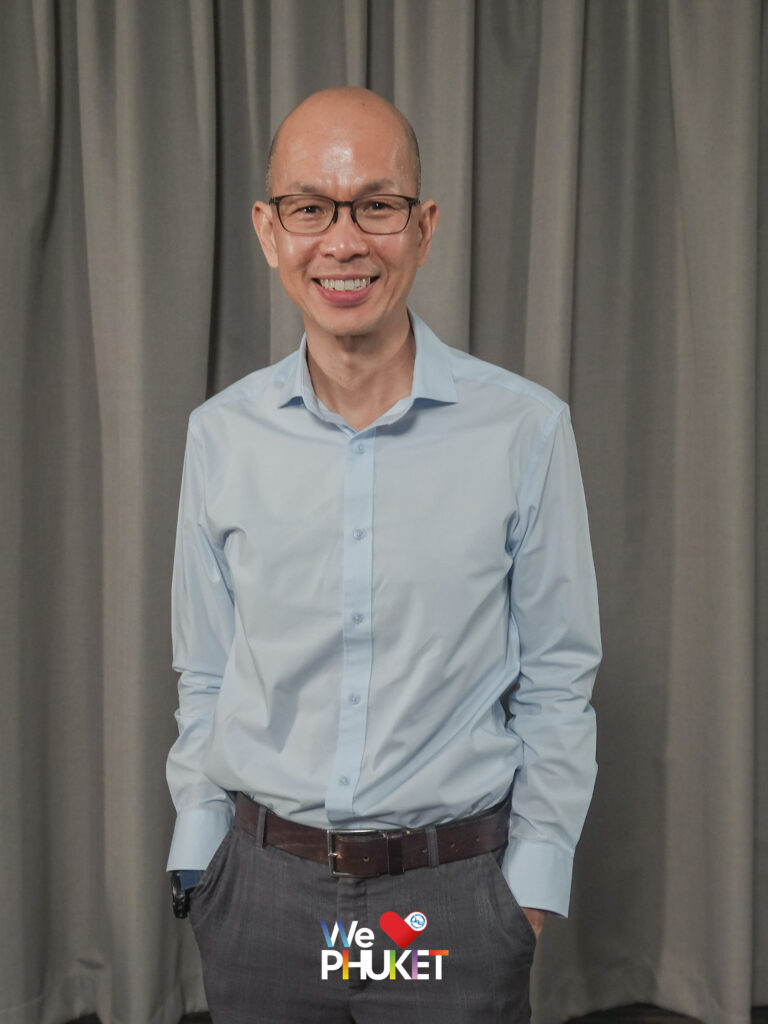
Angkana Thanetwisetkul
โรงแรมพีชฮิลล์รีสอร์ท
High investment, not worth it, a waste” may be the perspective of many business people towards investing in environmental initiatives. However, for this particular management executive, she doesn’t believe in such a notion and has spent over 20 years proving that investing in the environment is undoubtedly worthwhile. Ms. Angkanat Thanusawetkul, the General Manager of hotels under the Peach Group Resort, including Peach Hill Resort, Anda Mani Resort, and Peach Blossom Resort, firmly holds the belief that sustainable tourism and environmental conservation can go hand in hand, with the goal of sustainability.
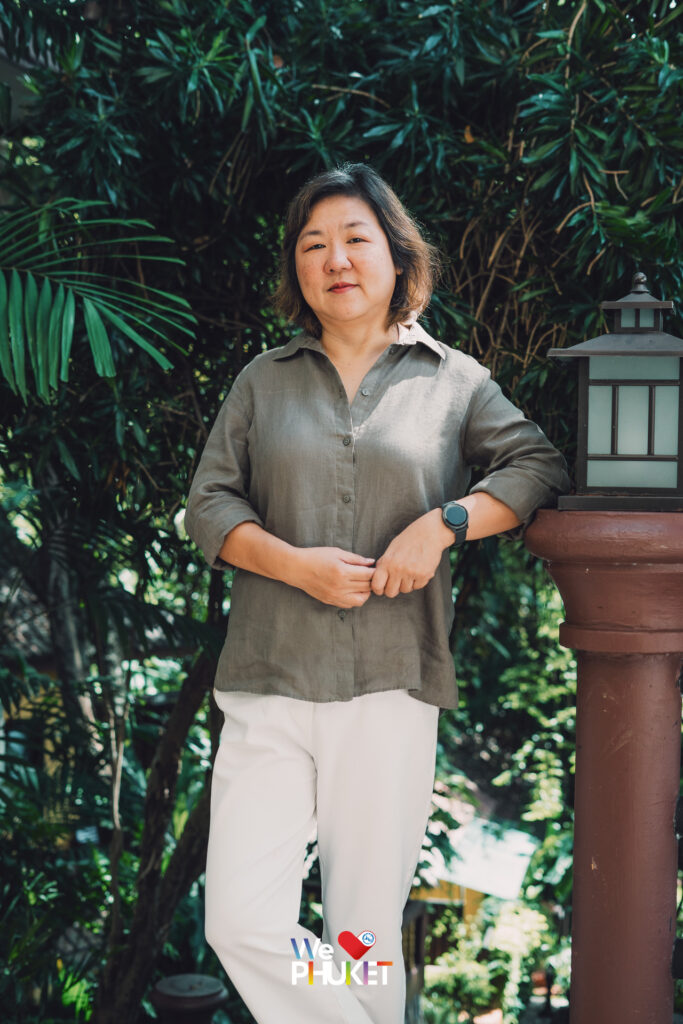
Our family started the hotel business about 25 years ago. I returned to help with the family business after studying hotel management in Switzerland. Due to my personal interest in environmental issues, when I took over the management of Peach Hill Resort, I was determined to make it an eco-friendly hotel. For example, during the expansion of the hotel, we made every effort not to cut down any trees. We followed the principles of Green Building, designing the buildings to allow natural light to enter and avoiding the use of air conditioning in public areas to reduce electricity consumption. We also use solar energy for the room’s water heaters. We have been implementing these practices for over 20 years, back when environmental conservation wasn’t as popular as it is now. Most of our guests during that time were European tourists who appreciated the tranquility and natural surroundings. They often mentioned that they liked our place because of its peaceful and lush environment. From the beginning, our intention has been not to conduct business that harms the environment.
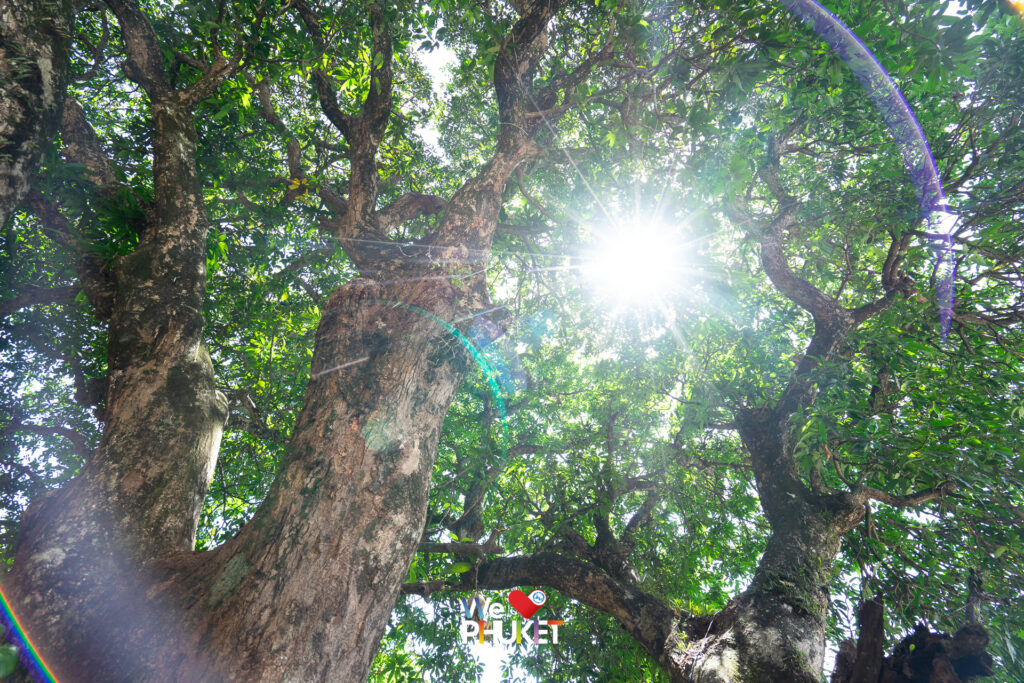
Not only have you shown dedication from the beginning, but over the years, you have also gained knowledge about running an environmentally friendly business. You’ve actively participated in programs with organizations like the Green Leaf Foundation, which sets environmental management standards to elevate environmentally friendly services through certifications like The Green Leaf Certificate and Green Hotel, consistently earning the Travelife Gold Award, an international tourism organization’s recognition.
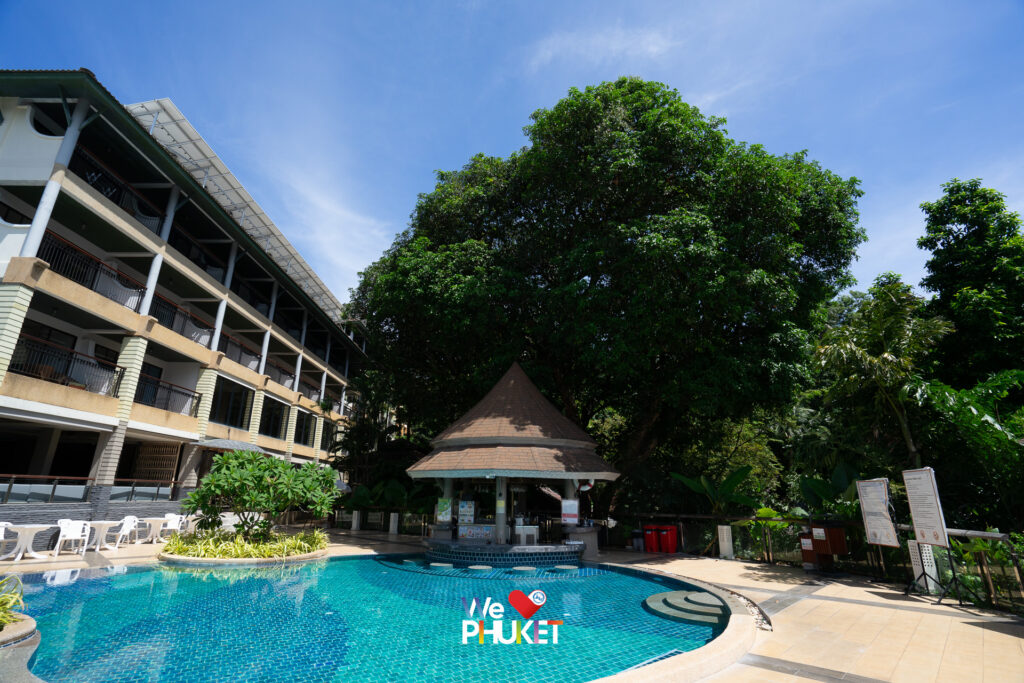
These various standard certifications come with detailed management practices that we must implement. For instance, the Zero Waste concept and waste reduction have been ongoing practices even before the COVID-19 pandemic. In terms of organic waste, which constitutes 60-70% of the total waste sent to Phuket’s incinerators, hotels and restaurants generate the most organic waste. To address this, we have been actively managing our organic waste within the hotels to avoid contributing to the overall burden. Organic waste from the kitchen and buffet lines of all three hotels in our group is no longer disposed of outside; instead, we process it into compost and EM (Effective Microorganisms). We use these products in our own gardens, and some of the produce is utilized in the buffet lines for breakfast. The recyclable waste has been sorted and managed for quite some time, but until now, we have not weighed it to determine its actual value in terms of monetary return. The certification requirements now obligate us to weigh the waste to understand its value and how much money we can recover from selling recyclables. Proper waste segregation and recycling not only help reduce carbon dioxide emissions, a harmful byproduct of incineration but also provide a monetary return on our efforts.
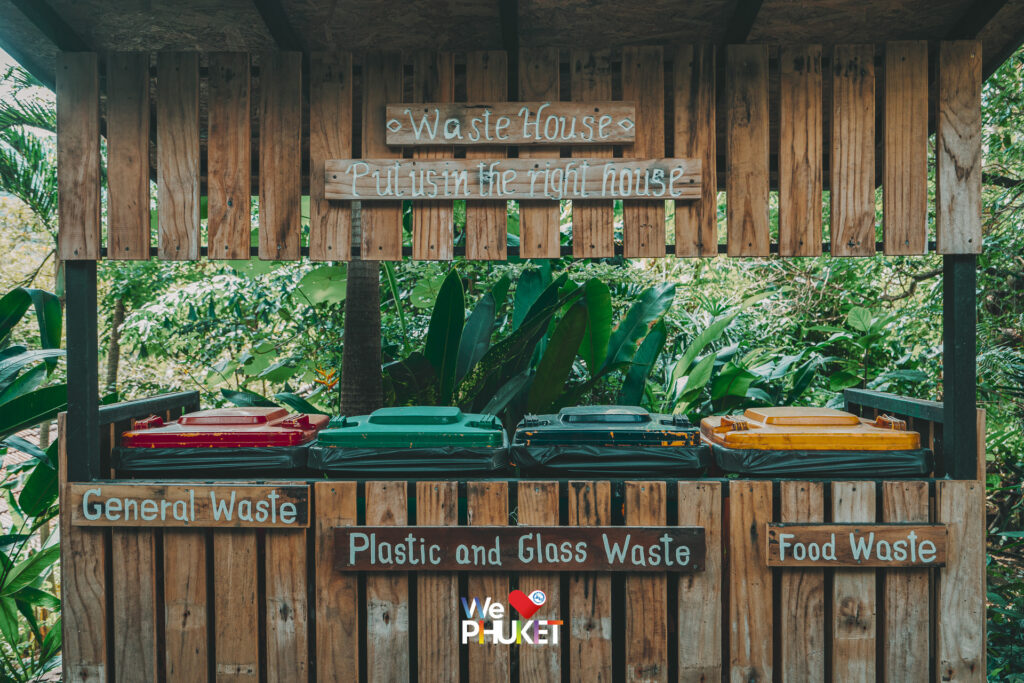
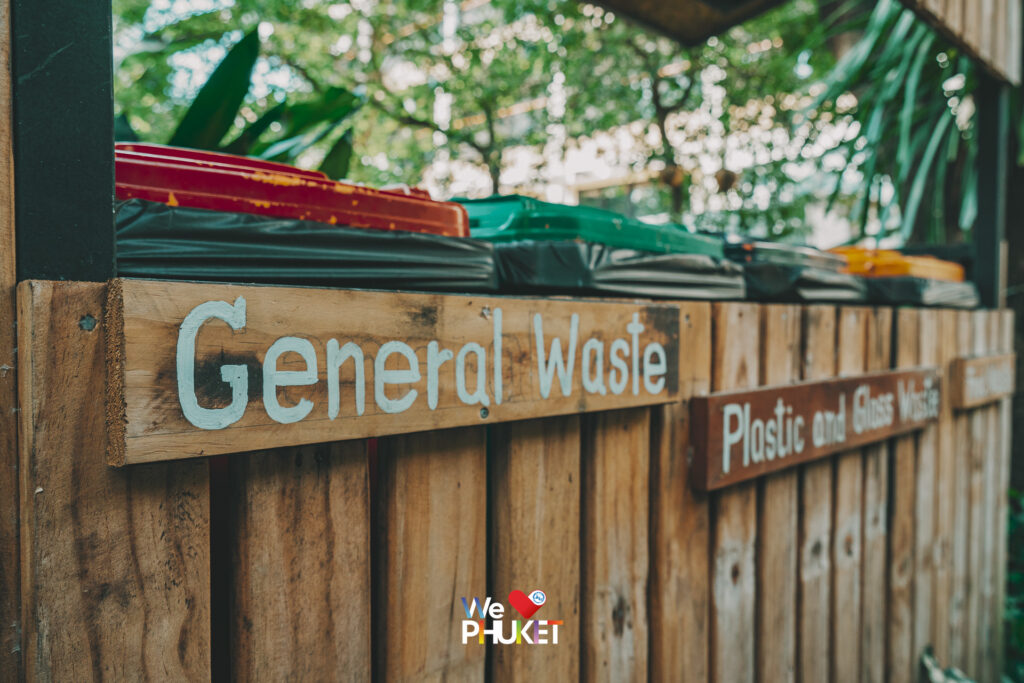
Not only in waste management, but we also focus on Zero Waste Water. All hotels already have wastewater treatment systems, but traditionally, the treated water is discharged into public drains, which can lead to natural water sources or flow into the sea. However, we questioned why we should dispose of the treated water outside when we could reuse it internally. We now use 100% of the treated wastewater to irrigate the plants and trees within the hotel premises. As a result, during the dry season, we no longer need to purchase water from multiple private suppliers, as groundwater and tap water used to be scarce. Instead, we allow the treated water to percolate through the soil and return it to the natural aquifer, ensuring the water supply in our area is sustained. This change has significantly reduced our reliance on purchased water, and the data collection allows us to monitor and see the tangible impact of our management practices.


Another crucial approach that we take seriously is the utilization of Smart Energy, which has earned our hotel recognition with an Asia-Pacific level award. As a small-sized hotel, we strive to be the most energy-efficient, not only by using solar energy through our long-standing Solar Roof installations but also through various projects that have allowed us to reduce energy consumption by up to 20% without the need for major equipment investments.
Our efforts lie in effective management and changing operational practices. For instance, we encourage housekeeping staff to turn off air conditioning and lights when cleaning guest rooms. We also promote the use of larger floor mops instead of smaller ones, as they are more resource-efficient. These might seem like small, insignificant changes, but they add up to significant savings.
Furthermore, we have implemented an application that calculates and monitors electricity usage, informing us of peak consumption times. Armed with this data, we adjust our activities to reduce energy usage during peak hours, leading to lower electricity costs. We also leverage technology, such as using tablets for guest check-ins instead of paper, to minimize waste.
While these changes may seem minor, they collectively contribute to substantial cost savings in our management practices.
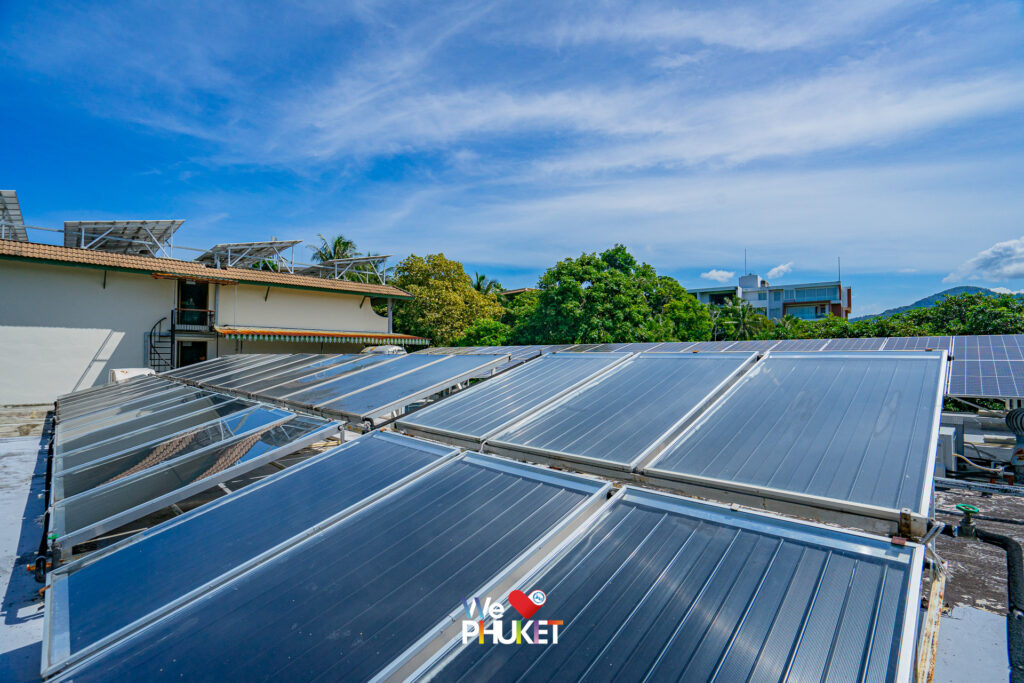
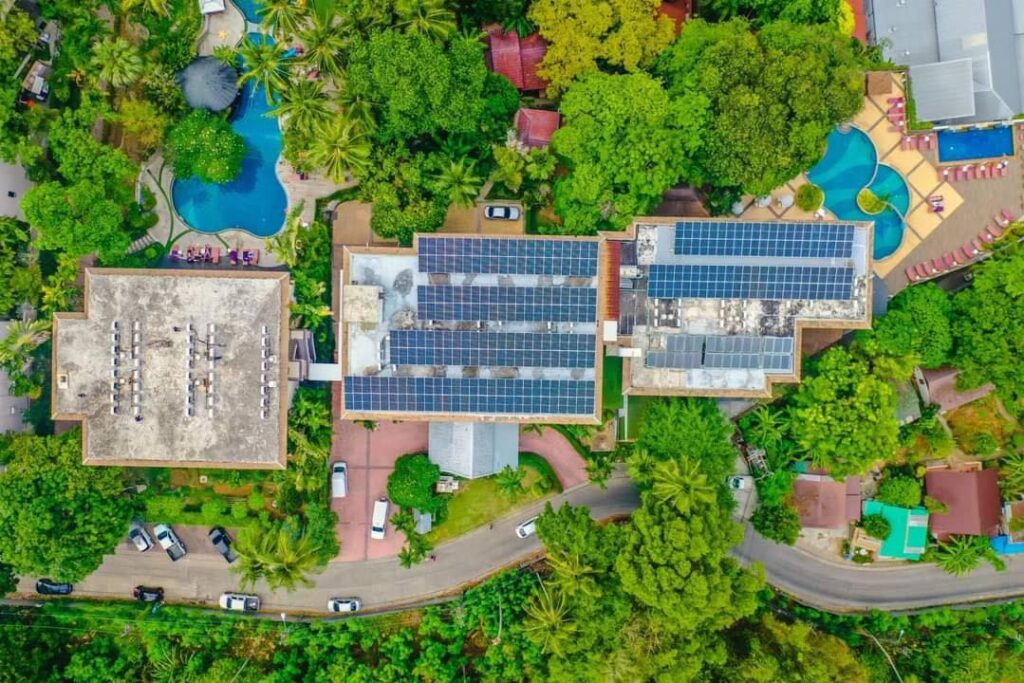
The indispensable factor for the success of all processes is the commitment of the personnel. Even if the management is dedicated and determined, without employee participation, success cannot be achieved.
“All processes must be driven by employee involvement. To achieve continuous success in obtaining environmental certifications, department leaders must be the driving force, while the employees must be the ones to take action. Starting from the beginning, we provide knowledge and training, allowing them to suggest and propose ideas, as they possess the best insights into the most effective operational practices. Management must consistently motivate and create an organizational culture that fosters these efforts. A strong organizational culture ensures that even with the introduction of new employees, they understand the direction and contribute to the organization’s success, instilling a sense of pride in everyone involved.”
“All the efforts we have continuously undertaken for over 20 years not only help preserve the environment but also lead to cost reductions in our business. People often assume that creating an Eco Hotel or Green Hotel requires high investment, but I have personally proven that it’s not entirely true. On the contrary, it reduces costs in the long run. For instance, investing in Solar Roof only takes 5 years to recover the investment and then reduces electricity costs by up to 20%. Similarly, using Eco Products may have slightly higher initial costs than conventional ones, but the long-term benefits for the environment are significant. Some initiatives may not be direct investments, but they require more attention to detail and yield worthwhile long-term results. The outcomes are certainly worth it.
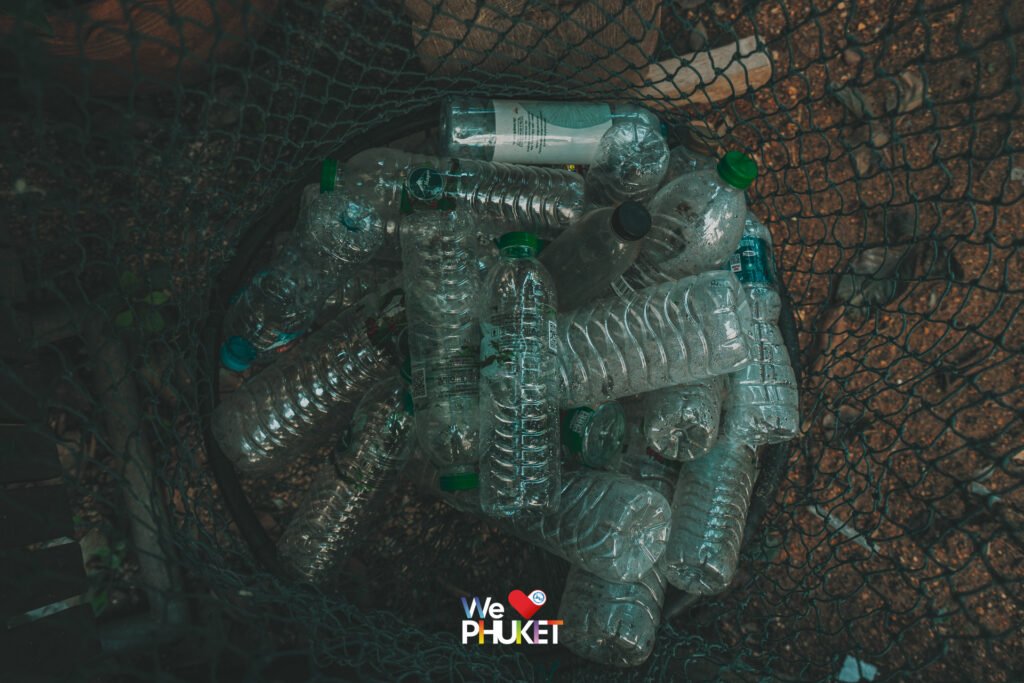
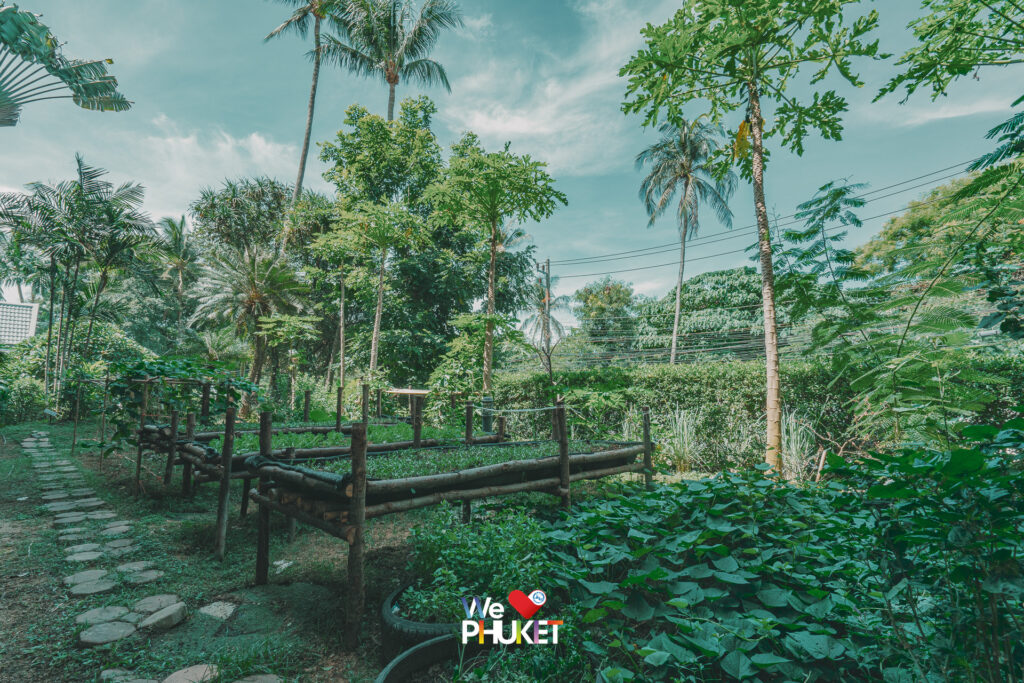
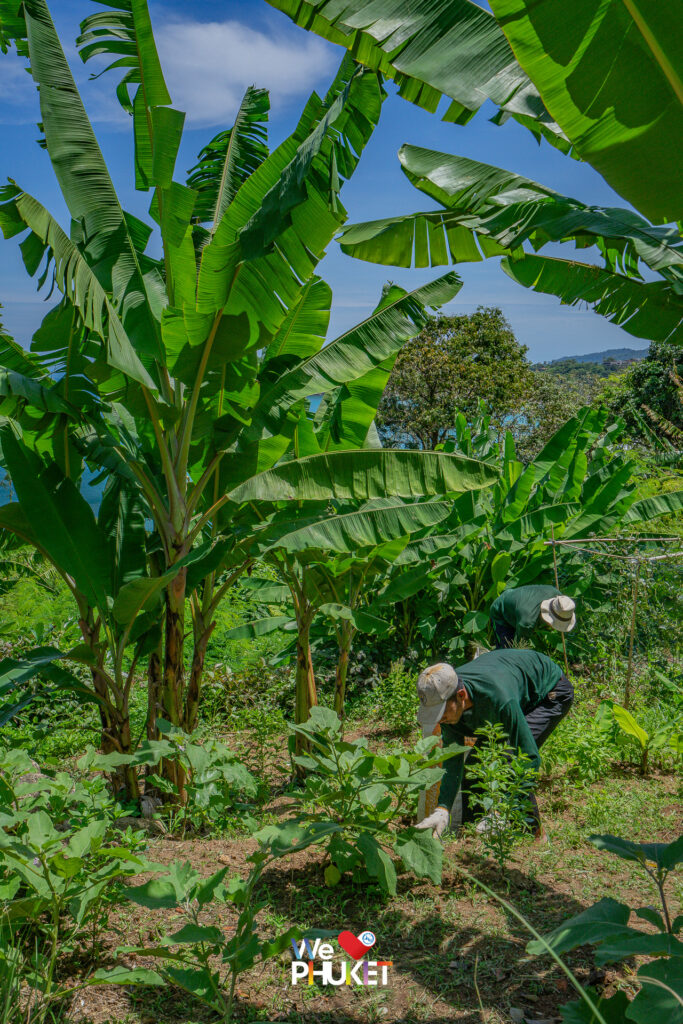
When we were children, Kata Karon Beach used to be so white, with fine sand like flour. We witnessed it ourselves. But now, it’s not the same anymore. Our local beach has changed significantly. If we don’t collectively take care of the environment starting from today, how will the future be? That’s why we have been committed to this cause for over 20 years. To me, ‘sustainability’ means growing together, harmoniously coexisting with nature without conflicting with it. Sustainability means living together happily. That’s the underlying message from the management of Peach Hill Resort.
Phromroj Wimonkul
Poonsook Craft
Where does it go after being discarded? The journey of waste is something that many people might not pay much attention to. But for Mr. Phromroj Wimonkul, or Mr. Ou, the founder of Poonsook Craft, he doesn’t let waste become valueless pollution to the environment. Instead, he seizes the opportunity to create value by infusing creative ideas. He has transformed Poonsook Craft into an environmentally conscious business, producing upcycled products, generating income, and being eco-friendly.
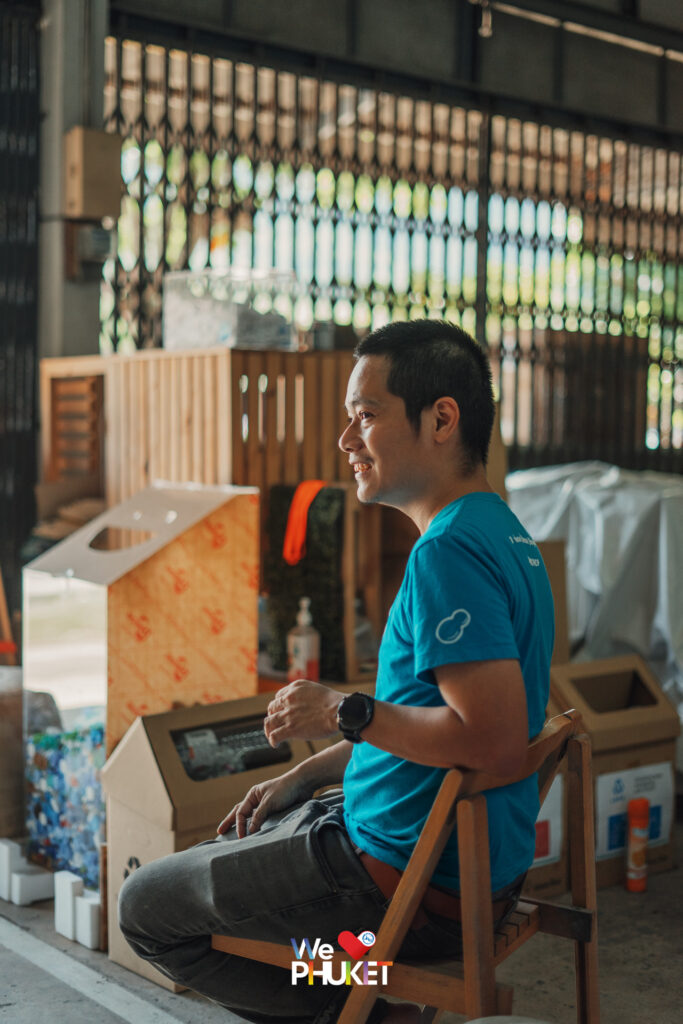
Mr. Ou recounted his background, stating that he was born in Phuket and completed his education in product design. At one point, he lived and studied in Singapore and Australia, where he witnessed their relatively effective waste management systems. This exposure provided him with insights into waste management practices from these countries. Upon returning to Phuket and working for a period, he decided to utilize his design knowledge and began creating and selling fabric bags. This marked the beginning of the Poonsook Craft brand.
Initially, the brand faced challenges and didn’t experience much success. However, during the COVID-19 lockdown, Mr. Oo noticed a significant increase in plastic waste due to the surge in food delivery consumption. This realization prompted him to discuss the issue with his wife, who works in the environmental sector, and she advised him on sustainable product ideas using recycled waste materials. This conversation sparked the idea of utilizing plastic waste to create various products under the Poonsook Craft brand.
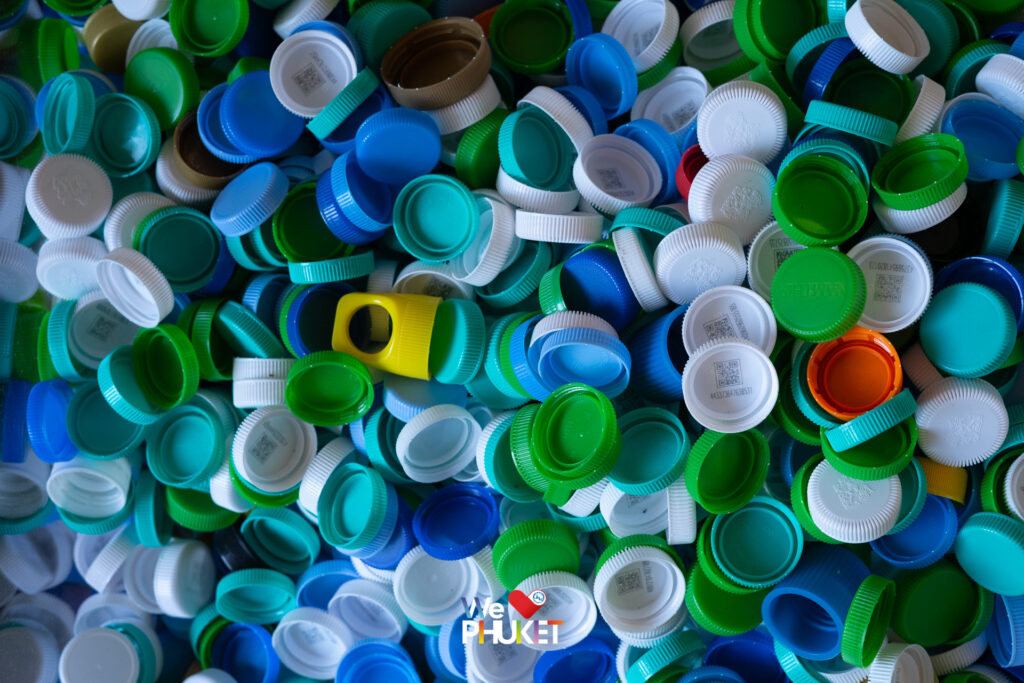
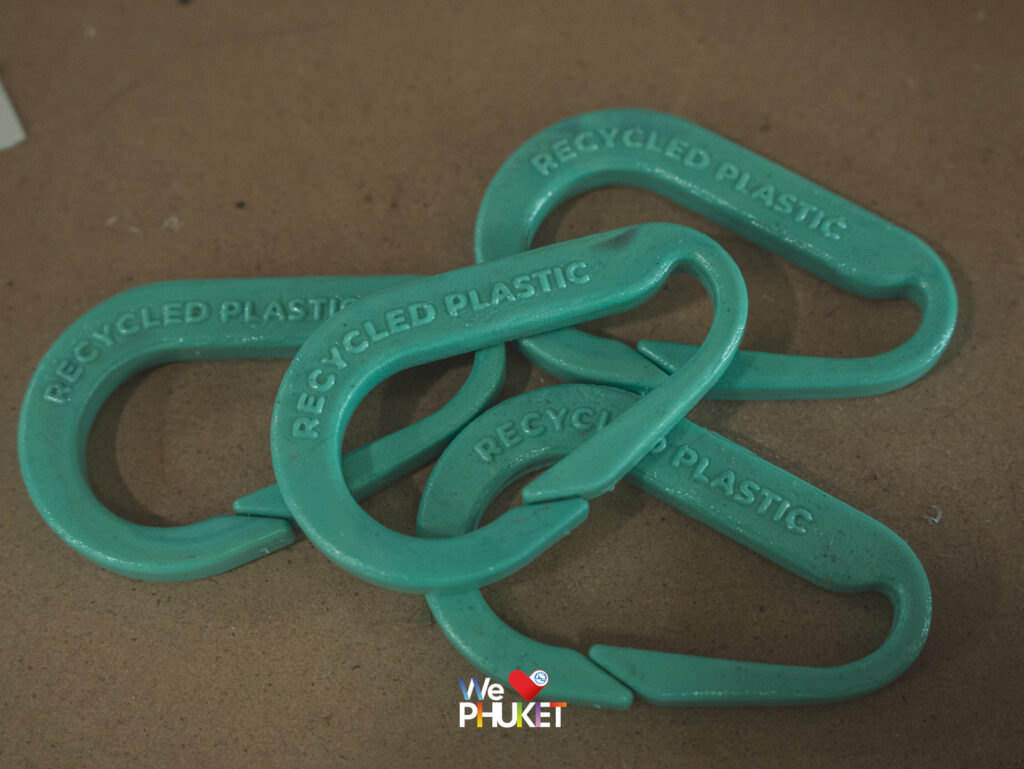




At that time, the trend of skateboarding was gaining immense popularity, so I decided to experiment with using plastic bottle caps to create skateboard decks. The response was surprisingly positive. The Tourism Authority of Thailand (TAT) invited me to participate in an event where I showcased the skateboard decks made from plastic bottle caps collected from the beach. It turned out that they could be used as a viable alternative. Utilizing my knowledge of Industrial Design, I created a plastic injection machine to manufacture various products. Through trial and error, I continuously came up with new products such as jewelry, keychains, coasters, race medals, plant pots, and dishes.
As interest in our creations grew, we started receiving more orders for commemorative items. We expanded the project and set up 20 collection points for plastic bottle caps across Phuket, mainly in shopping malls and community areas. Gradually, we increased our production capacity and continuously experimented with new ideas. Today, the Poonsook Craft brand has gained more recognition.
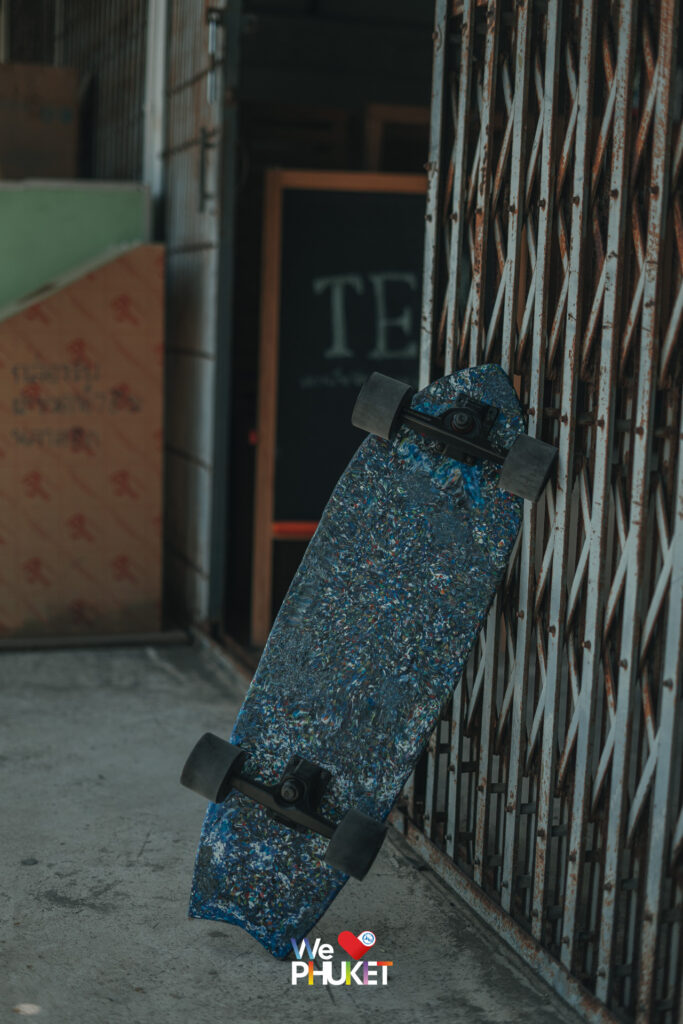
Poonsook Craft primarily focuses on custom-made products. Most organizations that host events come to us to design and produce commemorative items, such as race medals or keychains, using the plastic bottle caps we have collected. We also repurpose vinyl banners, which are non-recyclable and cannot be incinerated or sold. Instead, we transform them into bags. However, there is a limitation to this process as we can only create items when there is a demand from organizations to produce them. For example, during the Phuket Expo, there was a significant campaign promoting the awareness of vinyl banners. The project owner approached us to discuss how to make beneficial use of the banners after the campaign. We designed 2-3 types of bags and outsourced the production to a group of local seamstresses. The finished bags were then distributed to the event organizers for further use.
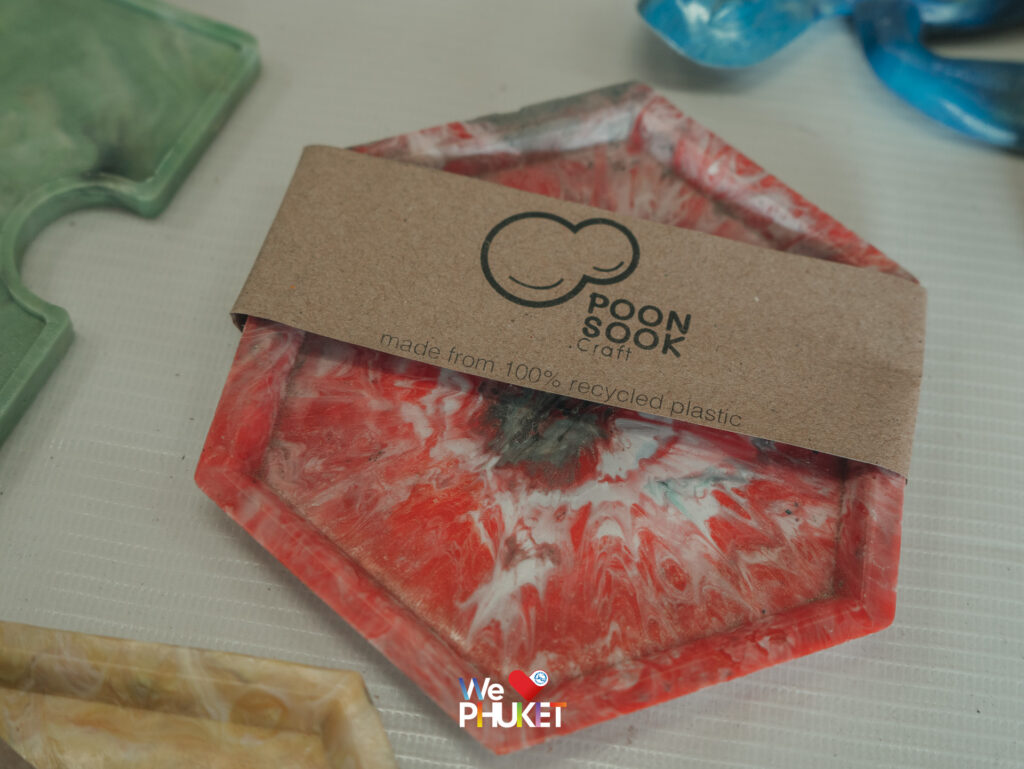
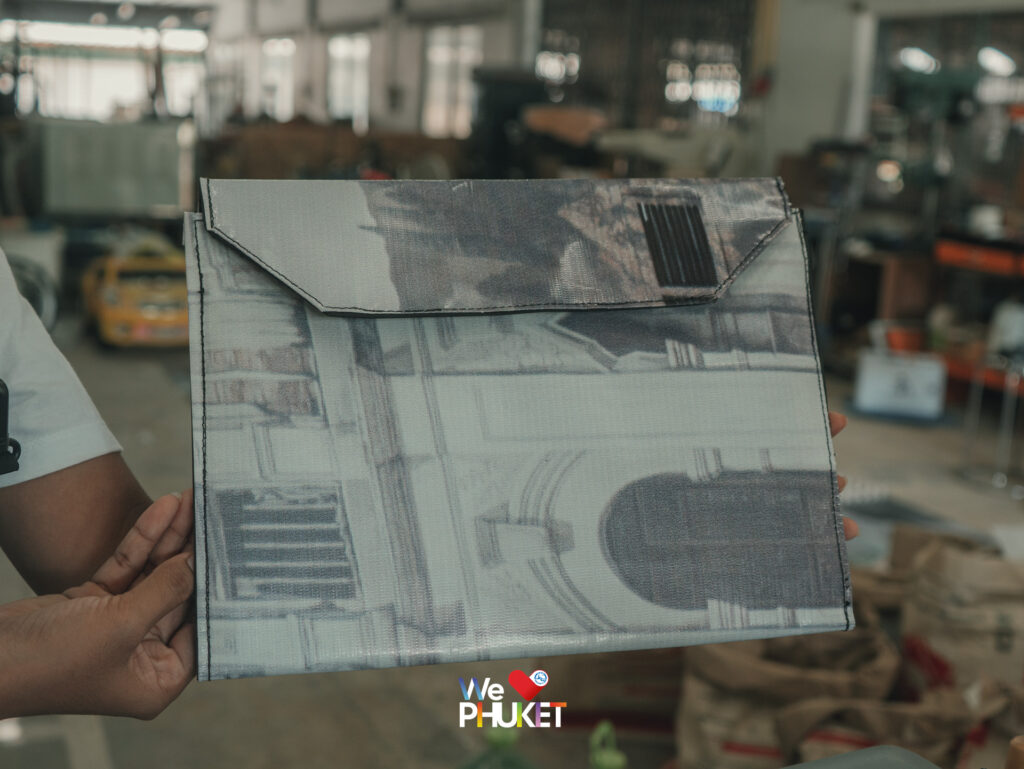

Poonsook Craft does not purchase waste materials to create products. We always advise individuals and organizations to sell their collected or segregated household waste first, as there is monetary value in doing so. Our main source of plastic bottle caps comes from the bins we have installed at various locations. These bins encourage tourists and passersby to dispose of their plastic caps separately, rather than throwing them into general waste bins. We collect the caps, clean and sort them by color and type, and then send them for the injection molding process to create plastic products. The amount of waste we collect has already exceeded what we can process into products. The waste management system in Phuket province can handle approximately 700 tons of waste per day, but during the COVID-19 pandemic, we generated about 1,000 tons of waste daily. As COVID-19 restrictions eased and tourism resumed, the daily waste reached approximately 1,500 tons, which is beyond the capacity the system can handle. Only about 5% of the total waste in Phuket is transformed into various products by us. I believe it is the responsibility of everyone to collaborate in reducing waste, especially in a situation where waste is overwhelming the city.
Poonsook Craft not only focuses on creating practical and useful recycled products but also conducts small workshops related to waste management. You, Khun Ou, open your own studio to teach children and interested individuals about waste segregation.
“We don’t just address the end product, but we work on the entire system. We sow the seeds of waste segregation in children, which is crucial in instilling environmental consciousness. Given that Phuket is a tourist destination, we generate an enormous amount of waste, especially plastic waste from tourist consumption. If we do not raise awareness about this issue, Phuket will undoubtedly face a severe waste management problem in the future.
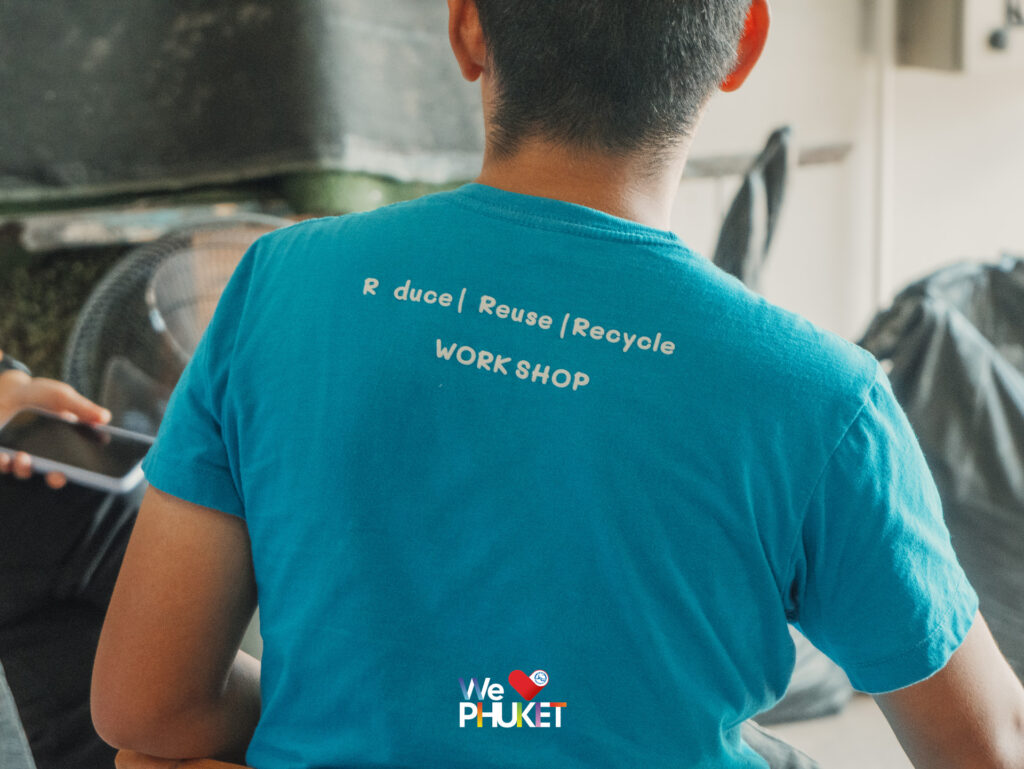
The direction of Phuket in the future should prioritize environmental sustainability over economic figures or tourist numbers. At the very least, let’s turn back to our traditional ways, reduce the use of plastic bags, and minimize single-use plastics. Sustainability might mean returning to a simpler lifestyle, reverting to our old ways, which may be less convenient, but if it makes Phuket, our home, a more livable place, then we all need to contribute and help make it happen.
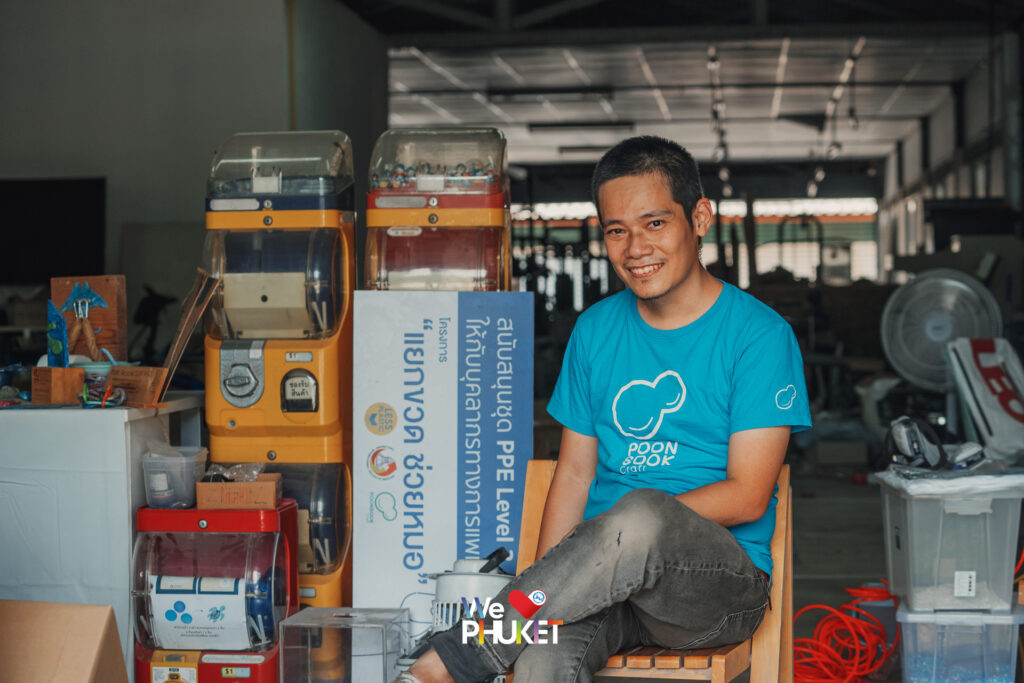

 ไทย
ไทย